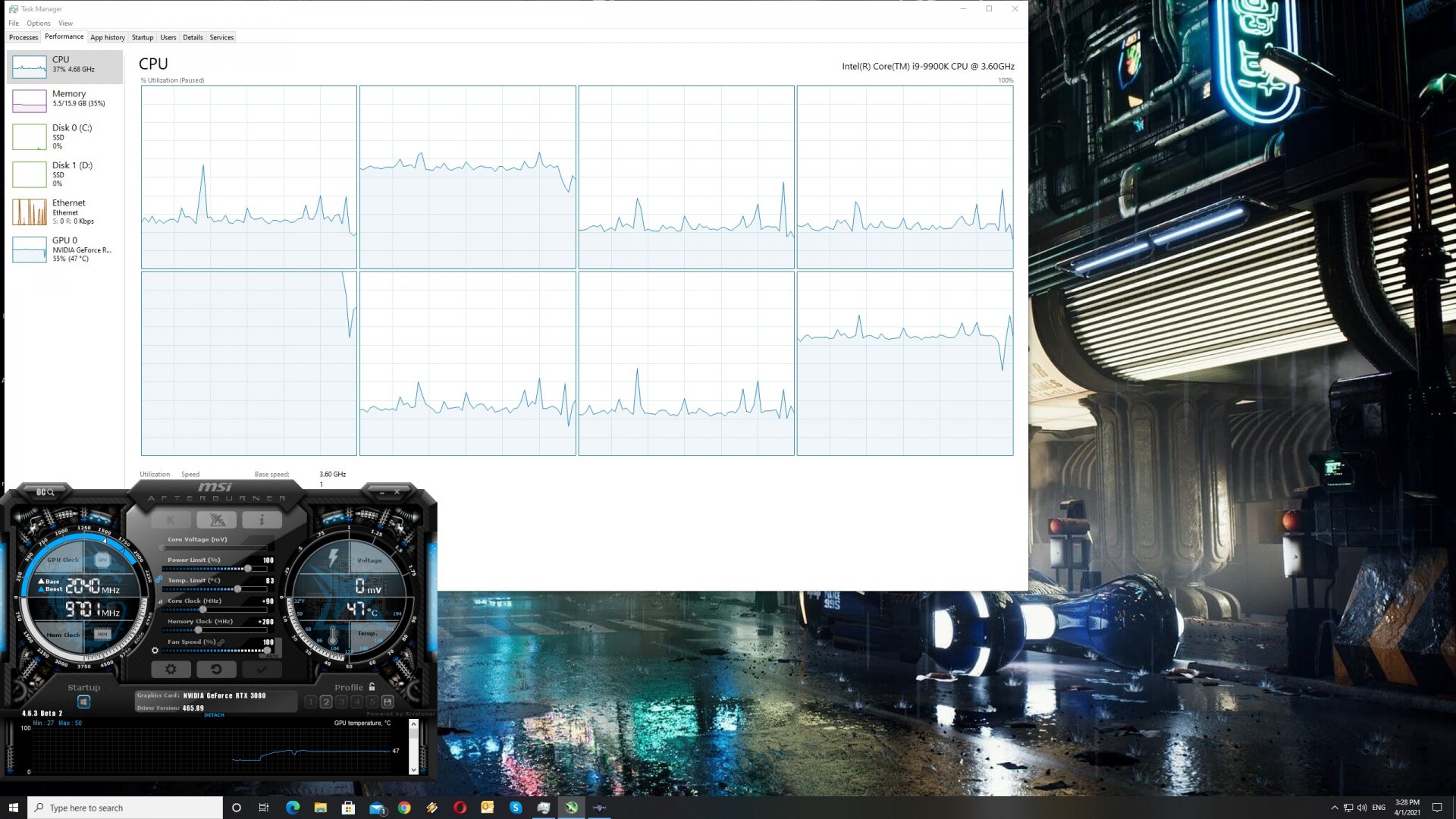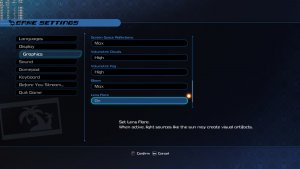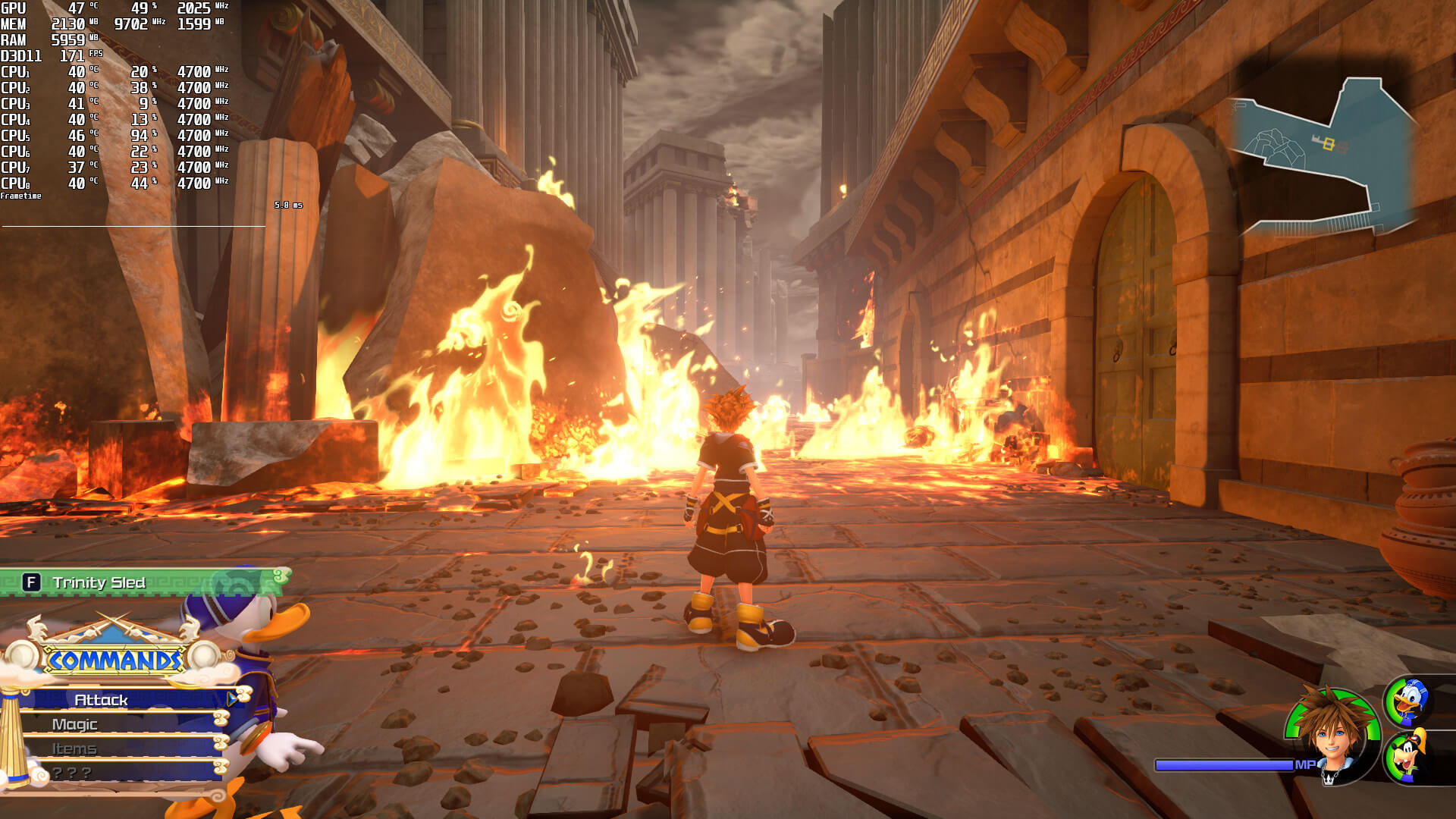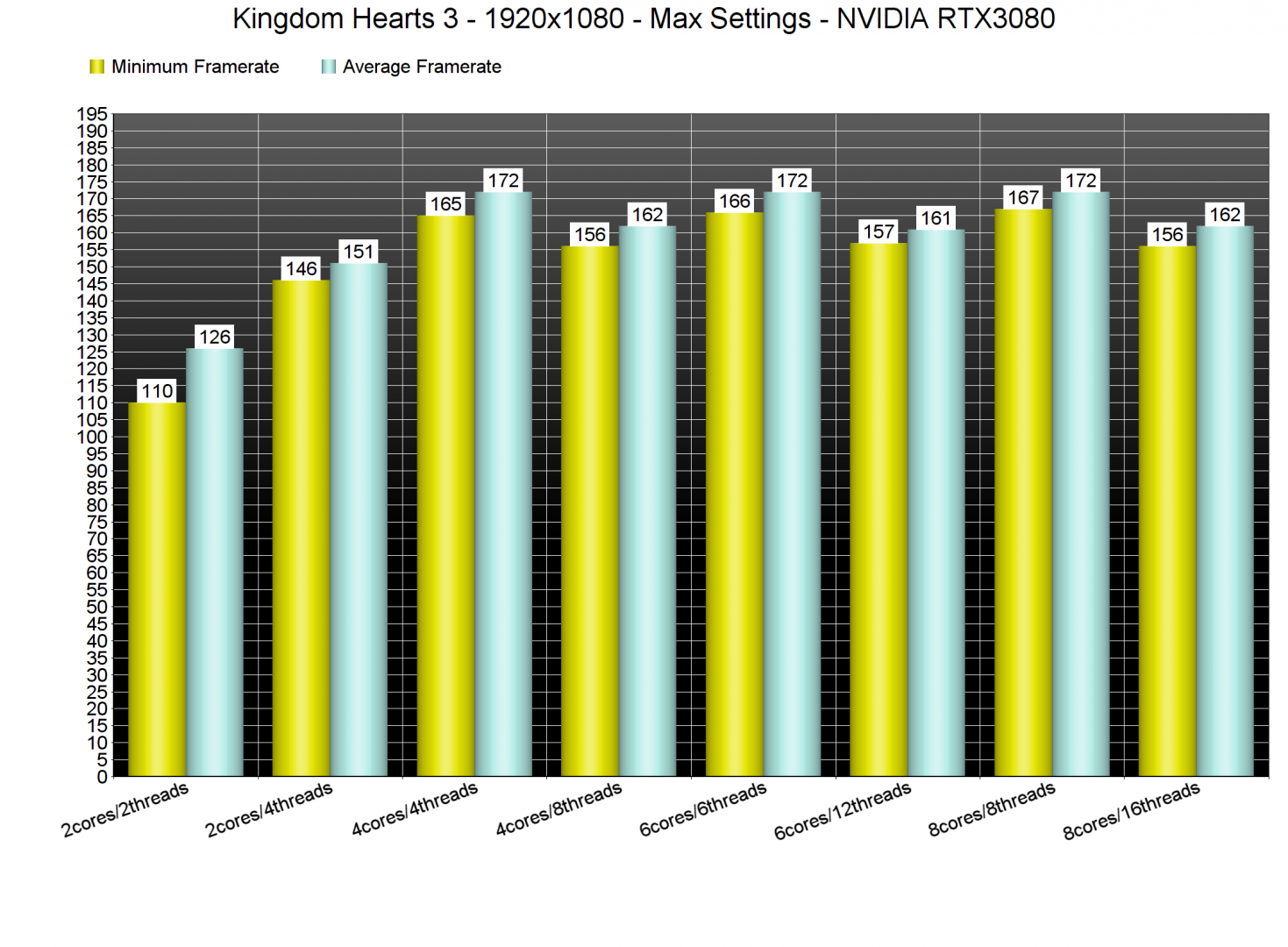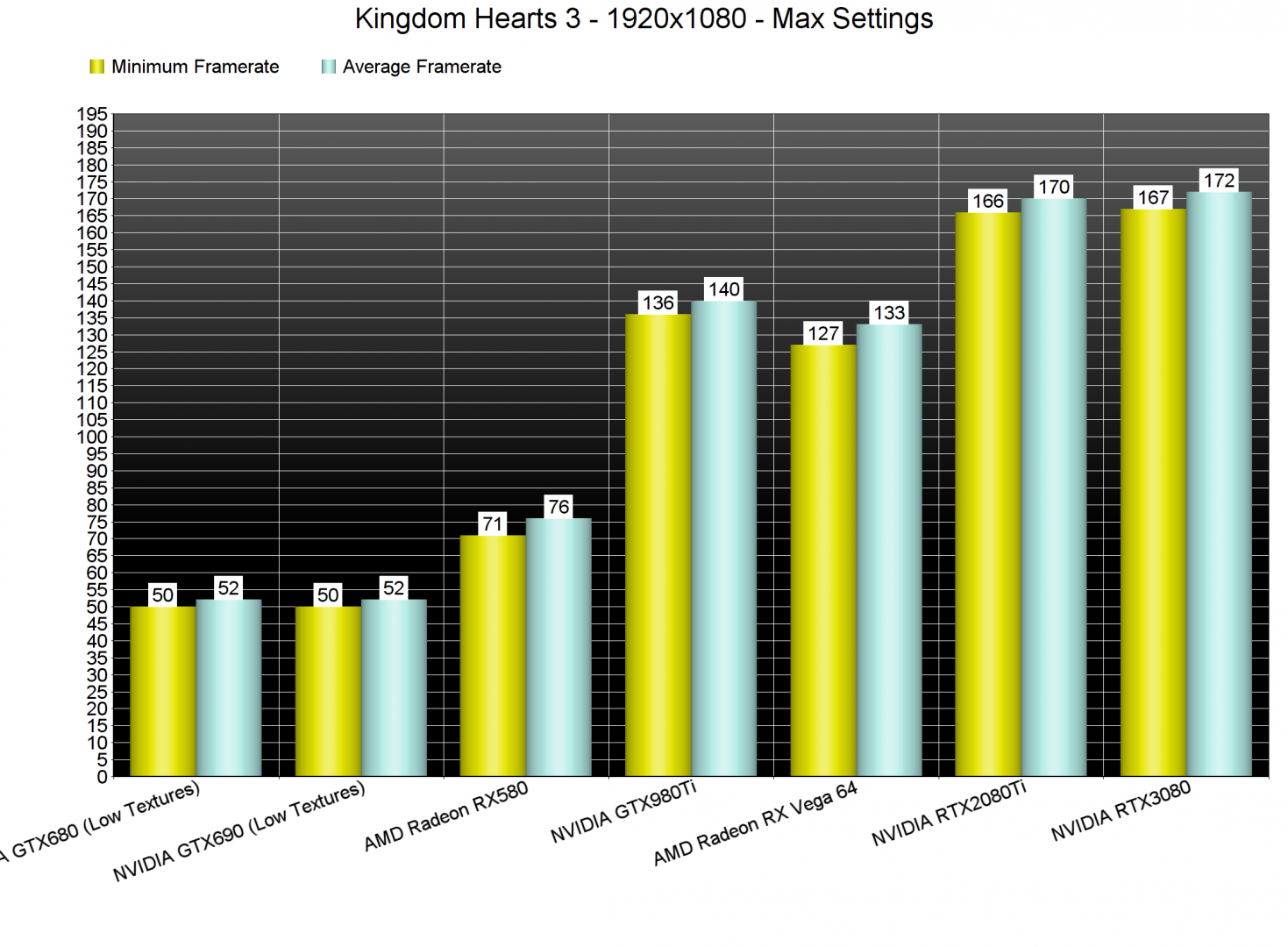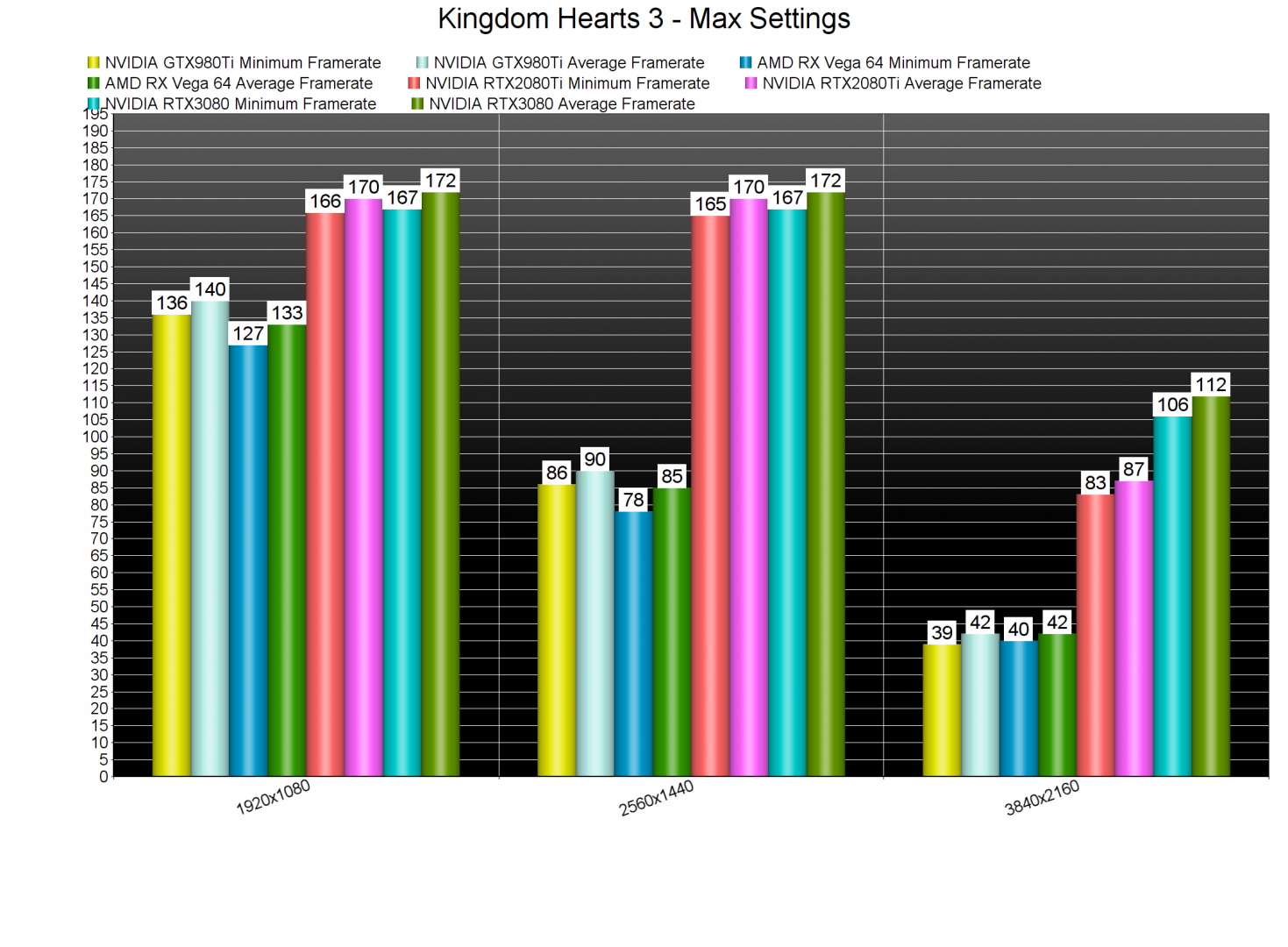Square Enix has finally released Kingdom Hearts 3 on the PC. Powered by Unreal Engine 4, it’s time to benchmark this game and see how it performs on the PC platform.
For this PC Performance Analysis, we used an Intel i9 9900K with 16GB of DDR4 at 3600Mhz, AMD’s Radeon RX580 and RX Vega 64, NVIDIA’s GTX690, GTX980Ti, RTX 2080Ti and RTX 3080. We also used Windows 10 64-bit, the GeForce driver 461.92 and the Radeon Software Adrenalin 2020 Edition 21.3.1 drivers. Since the game does not have any SLI profile, our GTX690 behaved similarly to a single GTX680.
Square Enix has added a respectable amount of settings to tweak. PC gamers can adjust the quality of Textures, Shadows, Character LOD, Foliage LOD, Ambient Occlusion, Capsule Shadows, Anti-aliasing, Screen Space Reflections, Volumetric Clouds, Volumetric Fog, and Bloom. There are also options for Motion Blur and Lens Flares. Additionally, the game sports Resolution Scale and Framerate settings.
In order to find out how the game scales on multiple CPU threads, we simulated a dual-core, a quad-core and a hexa-core CPU. And we are happy to report that Kingdom Hearts 3 does not require a high-end CPU. Now since the game does not come with any built-in benchmark tool, we’ve benchmarked this “Thebes” scene. From what we could see (after playing for over an hour), this scene was among the most demanding ones (for both CPU and GPU).
Even without Hyper-Threading, our simulated dual-core was able to run the game with more than 100fps at 1080p/Max Settings. Now we did notice numerous stutters while exploring the environments. Still, the fact that a modern-day dual-core CPU can run this game with more than 100fps is great news. When we enabled Hyper-Threading, we saw a noticeable increase at both minimum and average framerates. Moreover, there weren’t any stuttering issues with Hyper-Threading enabled.
As we can see, Kingdom Hearts 3 uses mainly one CPU core/thread. As such, we saw a small performance hit when we enabled Hyper-Threading on all other PC configurations. Thus, we suggest disabling Hyper-Threading for this particular title.
Kingdom Hearts 3 also runs smoothly a wide range of graphics cards. At 1080p/Max Settings, most of our GPUs were able to provide a 60fps experience. Also, and since this is an Unreal Engine 4 game that uses DX11, Kingdom Hearts 3 favours NVIDIA’s hardware. As such, the GTX980Ti is a bit faster than the AMD RX Vega 64 in this game.
At 1440p/Max Settings, our top four GPUs were able to provide a smooth gaming experience. As for 4K/Max Settings, the only GPUs that were able to provide a constant 60fps experience were the RTX2080Ti and the RTX3080. In this game, the RTX3080 appears to be 28% faster than the RTX2080Ti.
Graphics-wise, Kingdom Hearts 3 looks great on the PC. The game features higher quality textures and better LODs than the console versions, and runs at higher than 60fps. Fans of this series will be delighted with this port as there is nothing to complain about. Of course the game could look even better than that (given the raw power of modern-day PC systems) but hey, at least we got KH3 after all those years, right?
All in all, Kingdom Hearts 3 looks and plays great on PC. The game supports keyboard and mouse controls, displays proper on-screen prompts, and we did not experience any crash or stability issues. Not only that, but KH3 does not require a high-end PC system in order to run with more than 60fps. This is a pretty solid PC product, so kudos to its development team.
Enjoy!

John is the founder and Editor in Chief at DSOGaming. He is a PC gaming fan and highly supports the modding and indie communities. Before creating DSOGaming, John worked on numerous gaming websites. While he is a die-hard PC gamer, his gaming roots can be found on consoles. John loved – and still does – the 16-bit consoles, and considers SNES to be one of the best consoles. Still, the PC platform won him over consoles. That was mainly due to 3DFX and its iconic dedicated 3D accelerator graphics card, Voodoo 2. John has also written a higher degree thesis on the “The Evolution of PC graphics cards.”
Contact: Email


